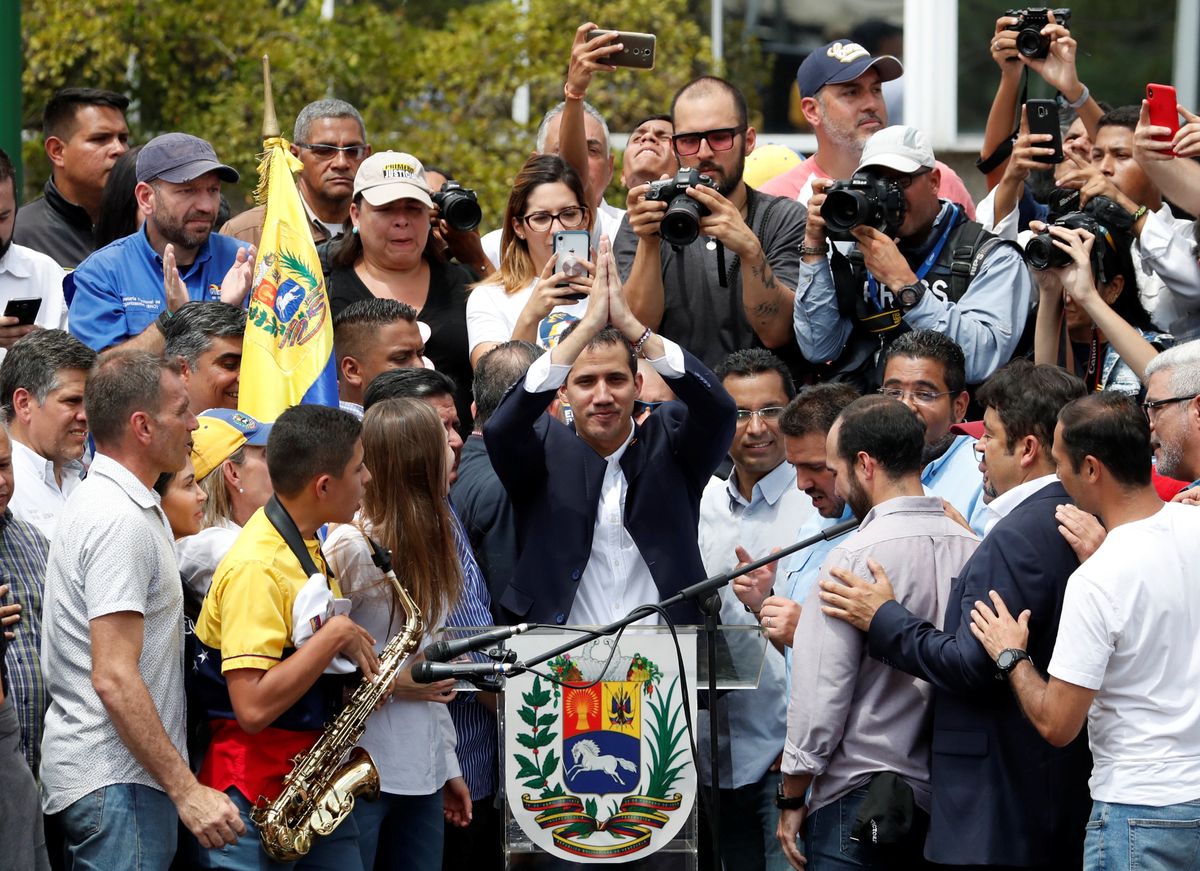Juan Guaidó, the opposition leader recognized as Venezuela's interim president by more than 50 countries, is willing to go as far as it takes to bring "freedom" to his country. That's what Guaidó told a GZERO correspondent at Caracas' Simón Bolívar Airport, moments after he rushed into a wildly cheering crowd of supporters. See the full video here.
Guaidó's return after nearly two weeks abroad reignites the contest for power between him and President Nicolás Maduro, who still controls much of the government and the military despite plummeting popularity and a deepening humanitarian crisis.
Looking ahead: Guaidó has tremendous popular momentum – enjoying a 61 percent approval rating, compared to just 14 percent for Maduro – but to sustain support he'll need to show his supporters that he can make progress towards alleviating Venezuela's humanitarian crisis and achieving a political transition.
President Maduro, meanwhile, continues to cling to power with the allegiance of senior military figures as well as massive backing from the government and intelligence services of Cuba. But the cash flow that underpins the generals' loyalty to Maduro is drying up fast under harsher US sanctions. Guaidó's best hope for a quick transition is to convince some of the key brass to break with the regime.
Over all of this drama hangs the prospect of outside military intervention – an option that US policymakers and even some of Guaidó's advisers have hinted is still on the table. But none of Venezuela's neighbors support the idea of a fresh yanqui invasion in the region, and the risks associated might be too high even for the most hawkish Washington interventionists.
That said, the Trump administration has staked itself to a policy of regime change in Venezuela, and no one hates looking like a loser more than Donald Trump.
The bottom line: There have been many moments at which the Venezuela crisis seemed like it was coming to a head – Guaidó's return to his home soil makes the next few days critical to watch.



















